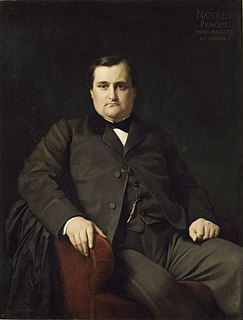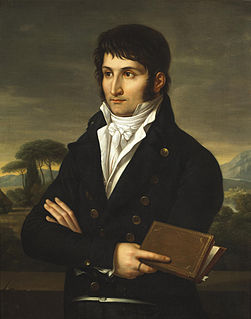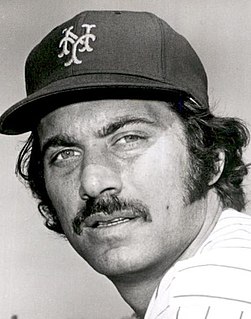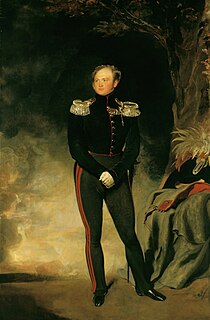
The House of Bonaparte is a former imperial and royal European dynasty of Genoese origin. It was founded in 1804 by Napoleon I, the son of Genoese nobleman Carlo Buonaparte. Napoleon was a French military leader who had risen to power during the French Revolution and who in 1804 transformed the First French Republic into the First French Empire, five years after his coup d'état of November 1799. Napoleon and the Grande Armée had to fight against every major European power and dominated continental Europe through a series of military victories during the Napoleonic Wars. He installed members of his family on the thrones of client states, extending the power of the dynasty.

Napoleon II was disputed Emperor of the French for a few weeks in 1815. The son of Emperor Napoleon I and Empress Marie Louise, he had been Prince Imperial of France and King of Rome since birth. After the fall of his father, he lived the rest of his life in Vienna and was known in the Austrian court as Franz, Duke of Reichstadt for his adult life. He was posthumously given the nickname L'Aiglon after the popular Edmond Rostand play, L'Aiglon.

Napoléon Joseph Charles Paul Bonaparte, usually called Napoléon-Jérôme Bonaparte or Jérôme Bonaparte, was the second son of Jerome, King of Westphalia, youngest brother of Napoleon I, and his second wife Catharina of Württemberg. An outspoken liberal, he became the de facto head of the House of Bonaparte from 1879 to his death. He was not considered a legitimate pretender to the throne by many Bonapartists, due to his father's previous marriage without divorce. They instead preferred his son Victor. From the 1880s he was one of the stronger supporters of General Georges Boulanger, together with other monarchist forces.

Lucien Bonaparte, Prince Français, 1st Prince of Canino and Musignano, the third surviving son of Carlo Bonaparte and his wife Letizia Ramolino, was a French statesman, who served as the final President of the Council of Five Hundred at the end of the French Revolution.

Joséphine Bonaparte was the Empress of the French as the first wife of Emperor Napoleon I. She is widely known as Joséphine de Beauharnais.

Napoléon Bonaparte was a French military and political leader who rose to prominence during the French Revolution and led several successful campaigns during the Revolutionary Wars. He was the de facto leader of the French Republic as First Consul from 1799 to 1804. As Napoleon I, he was Emperor of the French from 1804 until 1814 and again in 1815. Napoleon dominated European and global affairs for more than a decade while leading France against a series of coalitions in the Napoleonic Wars. He won most of these wars and the vast majority of his battles, building a large empire that ruled over continental Europe before its final collapse in 1815. One of the greatest commanders in history, his wars and campaigns are studied at military schools worldwide. He remains one of the most celebrated and controversial political figures in human history.

Paul François Jean Nicolas, vicomte de Barras, commonly known as Paul Barras, was a French politician of the French Revolution, and the main executive leader of the Directory regime of 1795–1799.

The French Revolutionary Wars were a series of sweeping military conflicts lasting from 1792 until 1802 and resulting from the French Revolution. They pitted France against Great Britain, the Holy Roman Empire, Prussia, Russia, and several other monarchies. They are divided in two periods: the War of the First Coalition (1792–97) and the War of the Second Coalition (1798–1802). Initially confined to Europe, the fighting gradually assumed a global dimension. After a decade of constant warfare and aggressive diplomacy, France had conquered territories in the Italian Peninsula, the Low Countries and the Rhineland in Europe and was retroceded Louisiana in North America. French success in these conflicts ensured the spread of revolutionary principles over much of Europe.

The Coup of 18 Brumaire brought General Napoleon Bonaparte to power as First Consul of France and in the view of most historians ended the French Revolution. This bloodless coup d'état overthrew the Directory, replacing it with the French Consulate. This occurred on 9 November 1799, which was 18 Brumaire, Year VIII under the French Republican calendar.

The War of the Second Coalition (1798–1802) was the second war on revolutionary France by most of the European monarchies, led by Britain, Austria and Russia, and including the Ottoman Empire, Portugal, Naples, various German monarchies and Sweden, though Prussia did not join this coalition and Spain supported France.

The invasion of Java in 1811 was a successful British amphibious operation against the Dutch East Indian island of Java that took place between August and September 1811 during the Napoleonic Wars. Originally established as a colony of the Dutch Republic, Java remained in Dutch hands throughout the French Revolutionary and Napoleonic Wars, during which time the French invaded the Republic and established the Batavian Republic in 1795, and the Kingdom of Holland in 1806. The Kingdom of Holland was annexed to the First French Empire in 1810, and Java became a titular French colony, though it continued to be administered and defended primarily by Dutch personnel.

James Louis Fregosi was an American professional baseball shortstop and manager, who played in Major League Baseball (MLB) from 1961 to 1978, primarily for the Los Angeles / California Angels. He also played for the New York Mets, Texas Rangers, and Pittsburgh Pirates.

Longwood House is a mansion in St. Helena and the final residence of Emperor Napoleon Bonaparte of France, during his exile on the island of Saint Helena, from 10 December 1815 until his death on 5 May 1821.
Federigo Fregoso, was an Italian nobleman, prelate and general.

Bonaparte Crossing the Alps is an 1848–1850 oil-on-canvas portrait of Napoleon Bonaparte, by French artist Paul Delaroche. The painting depicts Bonaparte leading his army through the Alps on a mule, a journey Napoleon and his army of soldiers made in the spring of 1800, in an attempt to surprise the Austrian army in Italy. The two main versions of this painting that exist are in the Louvre in Lens and the Walker Art Gallery in Liverpool, England. Queen Victoria also obtained a reduced version of it.

The First French Empire, officially the French Republic then the French Empire, was the empire ruled by Napoleon Bonaparte, who established French hegemony over much of continental Europe at the beginning of the 19th century. It lasted from 18 May 1804 to 11 April 1814 and again briefly from 20 March 1815 to 7 July 1815.

The French invasion of Russia, known in Russia as the Patriotic War of 1812 and in France as the Russian campaign, was begun by Napoleon to force Russia back into the Continental blockade of the United Kingdom.

Alexander I was the Emperor of Russia (Tsar) from 1801, the first King of Congress Poland from 1815, and the Grand Duke of Finland from 1809 to his death. He was the eldest son of Emperor Paul I and Sophie Dorothea of Württemberg.
Fregosi is a surname. Notable people with the surname include:
















